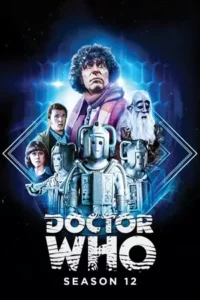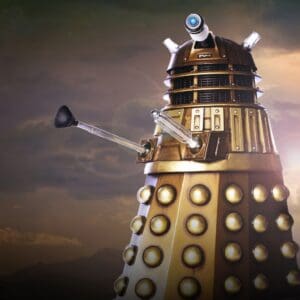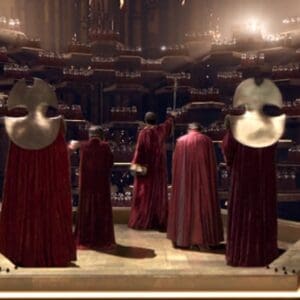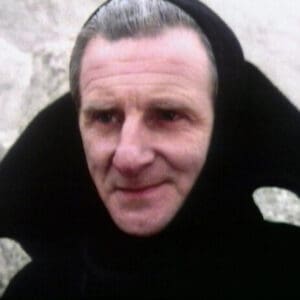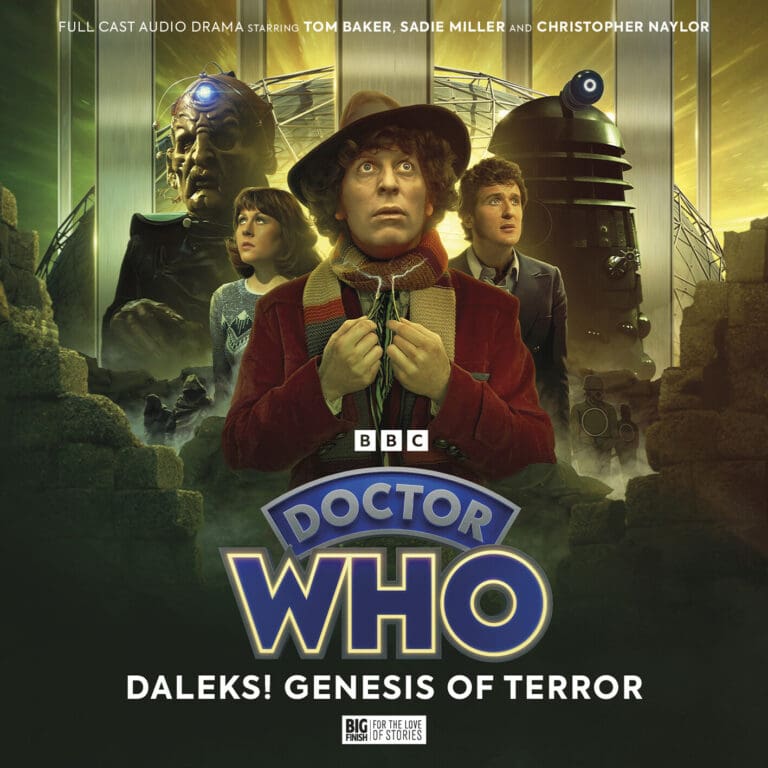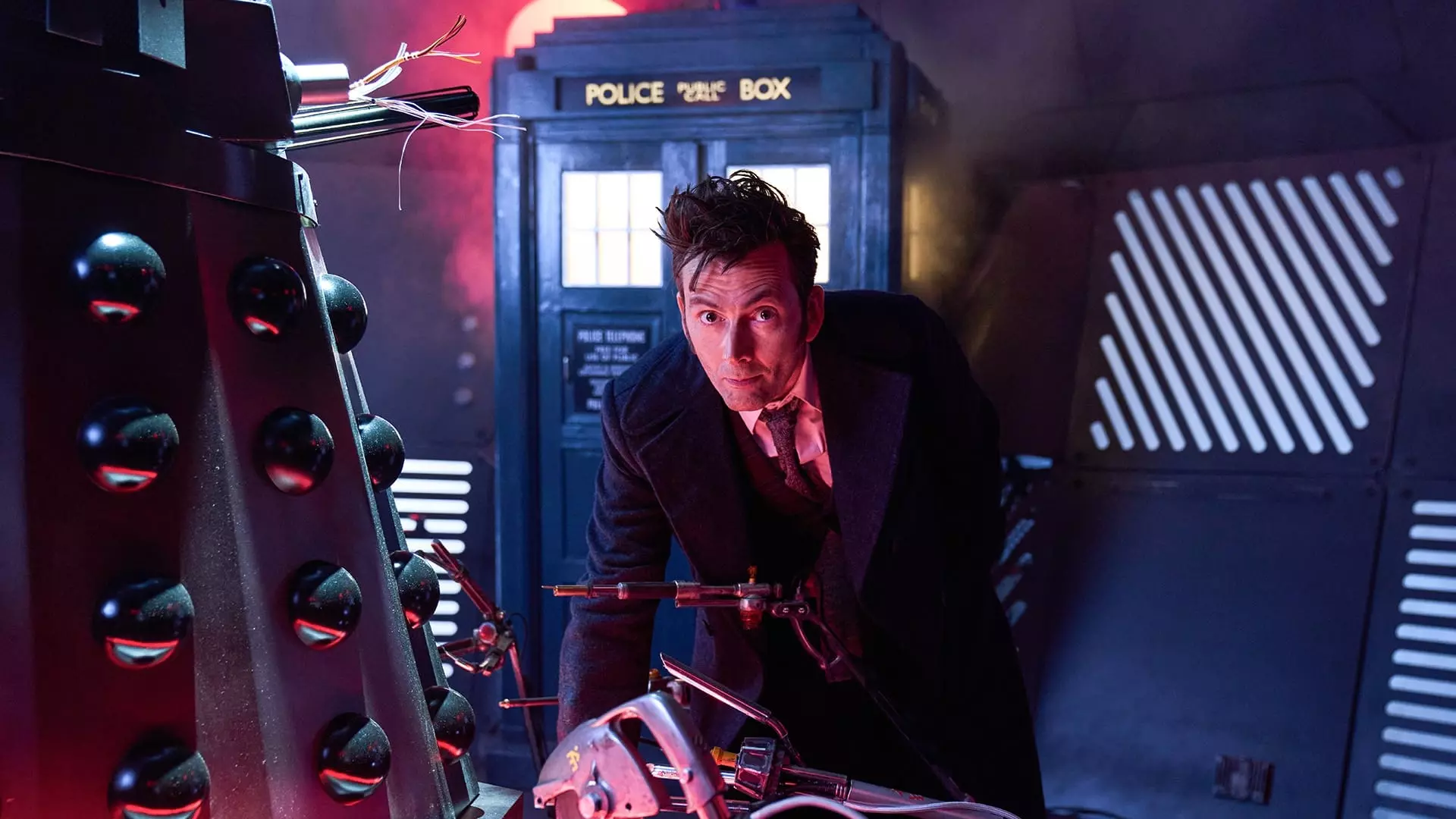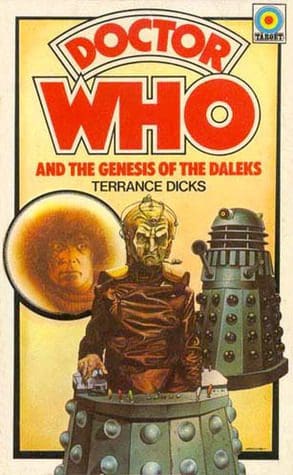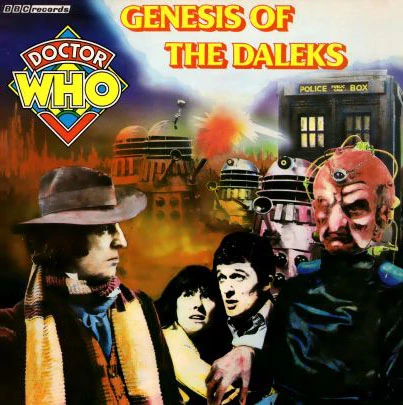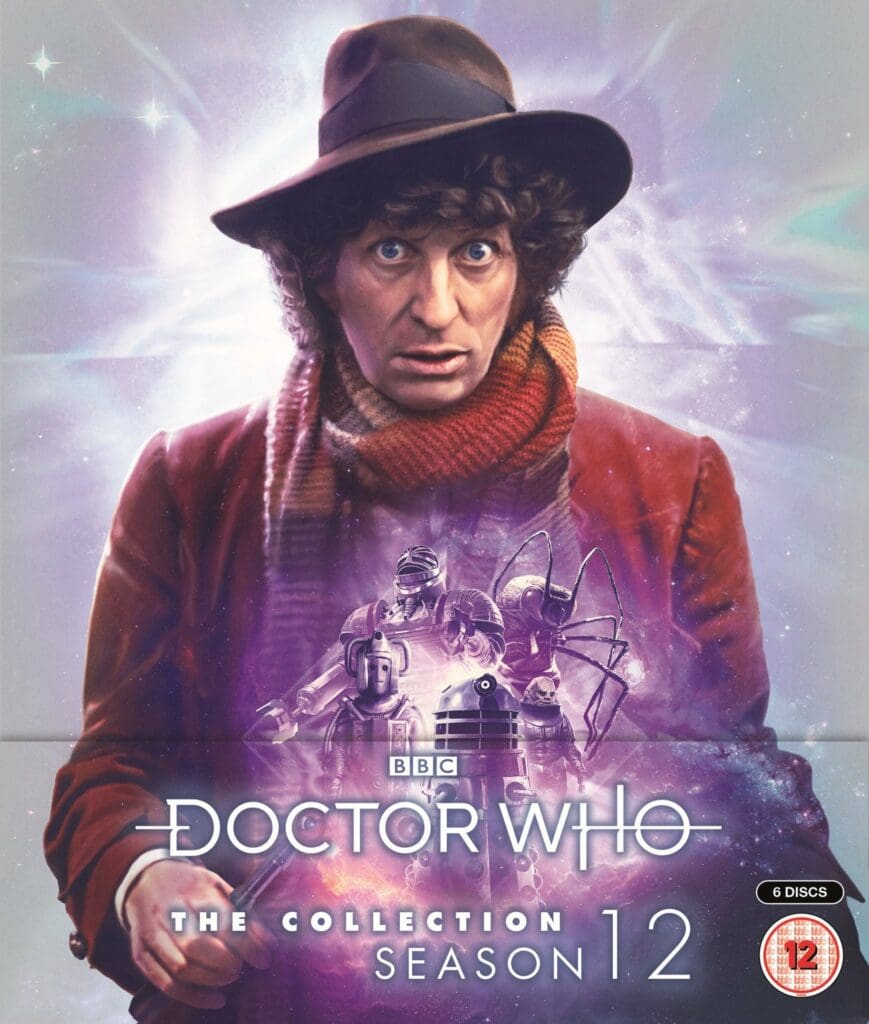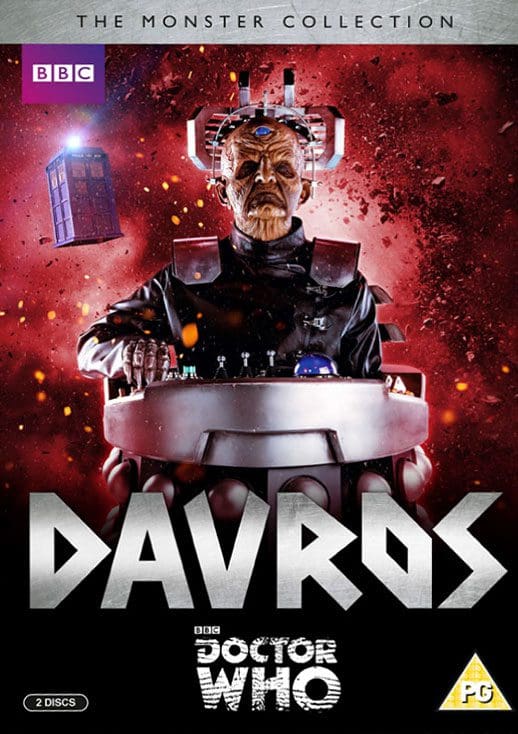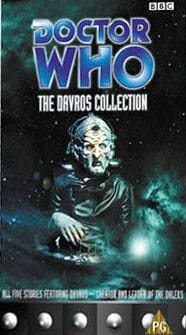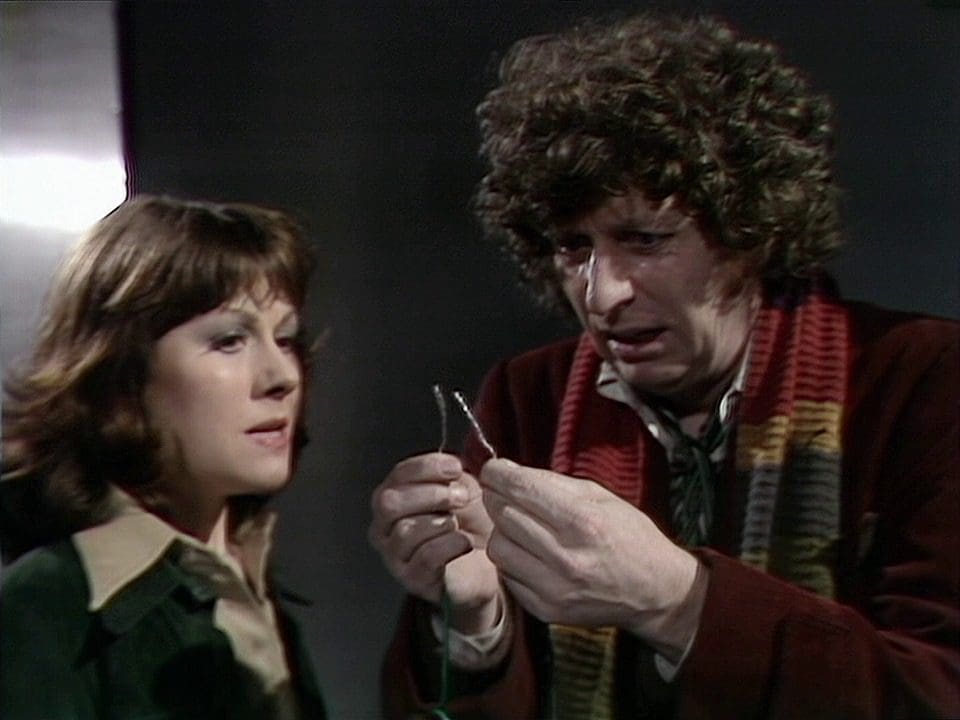
Classic Who S12 • Serial 4 · (6 episodes)
Genesis of the Daleks
Other variations of this story: Genesis of the Daleks (BBC Audio Soundtrack)
Reviews and links from the Community
This review contains spoilers
Review of Genesis of the Daleks by 15thDoctor
This story is not only matches Terry Nation's initial two Doctor Who efforts, it outshines them and reinvigorates the Daleks, who in my opinion had become stale by this point.
This story has a real purpose and vision which Nation's work had lacked for quite some time. The outgoing Barry Letts and Terrance Dicks had placed higher expectations on Nation after being displeased with his initial same-y script for this 6 parter. Incoming Philip Hinchcliffe and Robert Holmes then helped further develop this into something dark, new and exciting. The efforts of all five of them can be felt here. I can't think of a better Doctor Who story up until this point.
Darkness is not a flavour which I believe is at the core of Doctor Who, but I think that one or two stories a season can be justifiably darker in tone than the rest. After the romps of Robot/The Sontaran Experiment and the comedic The Ark in Space - there is certainly room for discussions of pure evil and genocide. Moments of hope run through this story before being dashed each time, in a show where we are used to The Doctor always winning - this has a powerful effect on the viewer.
The pacing of this story is notably fast, which is very rare for a six part story. From the first scene we are thrown into the action - The Doctor is sent on a mission to Skaro by the Time Lords' only to find out that he is already on Skaro. Skaro is home to three races: Thals, Kaleds and (new to this story) Mutos which gives The Doctor and his companions a huge wealth of characters and cultures to explore.
One could dub this story "Doctor Who and the Nazis" as no effort is made to hide the influence of WWII on this story, it is very effective. Kaleds are presented as wartime Germans but pleasingly there is nuance to their race. Many of the Kaleds find Davros' rise in popularity worrying and his beliefs abhorrent. The fact that the Daleks win makes this a cautionary tale - if good people are unable to make enough of a difference evil can triumph. These themes could seem cliche, but the Nazi uniforms, salutes and ethos of the Kaled race make them a highly credible and relatable threat (even all these years after the war).
The simple idea to do a genesis story for the Daleks is inspired. Since The Three Doctors the show has been happy to explore its own mythology, but this takes it to a new level - filling in tantalising gaps and making the show's lore richer and more detailed.
Davros is the best new villain since the Daleks. He has a very definite personality distinguishing him from the likes of Mavec Chen, Tobias Vaughn or The Master. Davros not only has a thirst for power but a unique ideology. Over the course of his conversations with The Doctor we are given a detailed justification of why he would like to be responsible for the destruction of everything. It is to Nation's credit that Davros' logic does not come across as flimsy or cartoonish.
The Doctor: It's not the machines, it's the minds of the creatures inside them. Minds that you created. They are totally evil.
Davros: Evil? No. No, I will not accept that. They are conditioned simply to survive. They can survive only by becoming the dominant species. When all other life forms are suppressed, when the Daleks are the supreme rulers of the universe, then you will have peace. Wars will end. They are the power not of evil, but of good.
Davros is also set apart by his disconnection from the rest of his own Kaled race. He is happy to betray them to the Thals in order to destroy most life on Skaro in favour of his own new creations. Another astonishingly evil and memorable move Davros makes in this story is forcing The Doctor to describe all the Dalek's future defeats by torturing Sarah Jane and Harry, this is an ingenious concept fit for an arch villain.
At the same time Davros is presented as vain and arrogant, considering his word to always be correct and logical - even when most people think he is wrong. For example, he is confident in his belief that there is no life in the universe outside of Skaro. When the Daleks inevitably overthrow Davros he comes face to face with his own arrogance.
Tom Baker's "Have I the right?" scene might be the most celebrated in Doctor Who's history and it is worthy of this status. Sarah Jane is wonderful in this scene, telling The Doctor what any member of the audience would - that the Daleks must be wiped out. This scene highlights the very "weaknesses" of The Doctor that Davros mentions, he could never condone genocide of any kind, for any reason. I feel proud of The Doctor as a hero and role model here, his disgust of violence and willingness to give peace a chance is perhaps his most amiable and important trait.
Thank goodness that the production team decided to depict how the Daleks came to be, this could have been another run of the mill Dalek story but instead it changed the entire shape of the show.
This remarkable, groundbreaking and dark six-parter does not end with The Doctor stopping the Daleks, instead he hinders their development. I think that is only right given that this is canonically his greatest enemies' first adventure.
This review contains spoilers
Review of Genesis of the Daleks by deltaandthebannermen
For the record, Genesis of the Daleks is one of my least favourite serials. I know, I know. Just pick your jaw up and I’ll explain. I’ve never been one to adhere to ‘fan wisdom’. My absolute favourite story of the classic series is Delta and the Bannermen (about as far from Genesis of the Daleks as you can get) and in terms of the new series my favourite episodes have been marmite stories such as Love & Monsters and Gridlock rather than acclaimed stores such as The Empty Child or Human Nature.
Consequently, Genesis’ appearance towards to top, or indeed the very top in one case, of DWM surveys, has never sat well with me.
I get it, I really do. Davros is an amazing creation, both in design and in Michael Wisher’s execution. Peter Miles, Dennis Chinnery, Stephen Yardley, Harriet Philpin and many of the other cast members are note perfect in their performances.
Tom Baker, Elisabeth Sladen and Ian Marter are a great team.
The idea of the Doctor visiting the creation of the Daleks is one of Nation’s best and the script is tense and contemplative on everything from science to war.
There are some cracking cliffhangers (even if Episode 2’s amazing freeze frame of Sarah falling from a high gantry is resolved by the massive cop out of a previously unseen platform a couple of feet below her).
But…Genesis of the Daleks is awfully grey. The sets are grey, the Daleks are grey, the wasteland is grey, the mutos are grey. The military elite wear black; the scientific elite wear white; mix them together and what do you get….grey. The Thals get to wear green and have yellow-beige walls, but the only true splash of colour comes from the Doctor, Sarah and Harry.
Being grey, it singularly fails to stir much emotion in me. I don’t honestly know what it is but I just cannot get excited by the story despite the fact I can recognise all the wonderful elements within its six episodes.
Possibly it’s over exposure on television is mainly to blame. In the 90s there was a paucity of Doctor Who on television. Every now and again the BBC would see fit to repeat the odd serial. More often than not, they chose Genesis of the Daleks.
What really riled me the most was when it looked like they might actually repeat a string of serials from Spearhead from Space onwards. I suppose, naively, I thought this might actually see the broadcast of all of Pertwee’s era and possibly beyond. In retrospect I realise this was unlikely but when after Spearhead from Space and Doctor Who and the Silurians the BBC announcer announced that next week would see the beginning of a thrilling adventure not, as expected, involving Mars Probes, mysterious astronauts and Liz Shaw in a thrilling car chase, but Tom Baker, Davros and the Daleks, I was livid. I realise now that, with the incomplete nature of The Ambassadors of Death, the most we could have hoped for was Inferno, but yet another repeat of Genesis of the Daleks – as if it was the only decent Doctor Who story ever made – just annoyed me.
Watching the serial now has done little to change my mind about its over inflated status. I just cannot get excited about it.
There are performances I enjoy; Stephen Yardley is great, especially when protecting Sarah Jane; Harriet Philpin is fun as Bettan – thoroughly unmoved by the possibility of having to sacrifice people she hardly knows (or hasn’t even met in the case of Sarah and Harry!) for the greater good of destroying Davros and the Daleks forever. Peter Miles is deliciously evil and, of course, Michael Wisher embues Davros – the human Dalek – with so much character that the crippled, embittered scientist survives not only this story but all the way to the Medusa Cascade and his rematch with Sarah Jane Smith. Terry Molloy and Julian Bleach give great performances as Davros – and David Gooderson does well enough in Destiny of the Daleks – but it is Michael Wisher who set the standard. (That said, having listened to I, Davros prior to watching this story, I am of the opinion that outside of the television series, Molloy actually gives the best performance as Davros – probably because I, Davros gives him so much more material to work with).
The central dilemma of whether the Doctor has the right to destroy the Daleks and change history is a worthy subject to explore and that one scene is justly revered. The problem is that, as a serial, I find Genesis of the Daleks dull. I know I’m in a minority but I cannot shake it, try as I might. This is particularly frustrating as I love I, Davros.
Following on from I, Davros’s portrayal of Skarosian civilisation we finally get to see visual representations of the barren wasteland and city domes – gently sloping plastic and metal affairs judging by the model work. Mutations in the wilderness are represented by giant clams, of all things. It would have been great if Nation had drawn on his previous Dalek stories, as I, Davros did, and reintroduce creations such as the Varga plants.
As a depiction of a war ravaged planet it is faultless (just very, very grey).
Review of Genesis of the Daleks by WhoPotterVian
Genesis of the Daleks is often thought of as a classic among us Whovians; so golden, in fact, that it would probably destroy an entire Cyberman fleet. It's obvious why, for Genesis of the Daleks is an excellent tale of morality that even manages to surpass the excellence of the very first Dalek serial 'The Daleks'.
One thing that's very clever about Genesis is how Terry Nation scatters hints throughout at what the Kaleds will become. The Kaleds already believe in purity. They already want to exterminate those whom they see as inferior. It's not hard to see that these Kaleds will become the machines of hatred we love to hate. Terry Nation was, of course, inspired by the Nazis when he created the Daleks; the Kaleds are already essentially Nazis here.
If the Kaleds are Nazis, then that makes the primary antagonist of this six parter, Davros, as their Hitler. And what a great Hitler he makes. Michael Wisher is brilliant; at all times, he seems every bit as intimidating as you would naturally expect for a scientist dictator desperate to see his new creation the Daleks succeed.
What truly sets this serial among the true greats of Doctor Who, however, is the gripping exploration of the Doctor's morality. The 'Do I have the right?' speech is an iconic and defining moment for the show, and for good reason too. The classic series isn't particularly known for its writing but the famous speech is as good as, if not better than the superior writing and dialogue of the new series.
Simply put: Genesis of the Daleks is a masterpiece and if you don't like it, you should be exterminated.
This review contains spoilers
Review of Genesis of the Daleks by mikeyatesapologist
sarah jane smith is a better woman than me, if the doctor was doing that "can we destroy them morally" shit id grab the cables off them. f**k your morals, nerd.
External Reviews / Opinion pieces
Community Ratings
(Updates coming soon:)
Add the last X members who rated it here
Add number of Favs, and who they are, here
